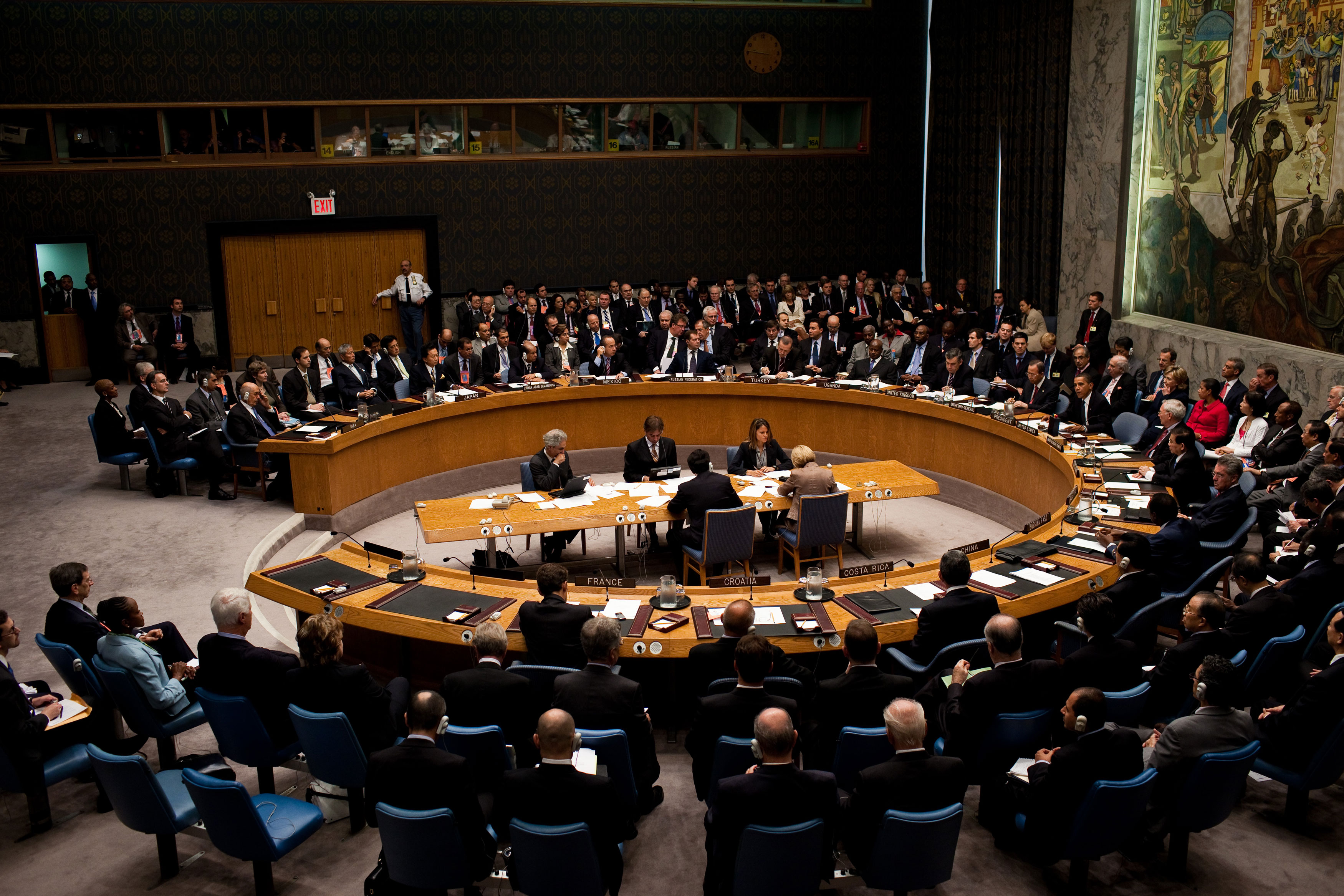 Photo Credit: White House: http://www.flickr.com/photos/whitehouse/3993800049/in
Photo Credit: White House: http://www.flickr.com/photos/whitehouse/3993800049/in
Recapping the United Nations Security Council Climate Security Debate
On February 23rd, the UK ended its February Presidency of the United Nations Security Council (UNSC) with a high-level debate on climate and security. The UNSC has discussed climate change for more than a decade, but Tuesday’s debate was notable.
António Guterres, UN Secretary-General told the UNSC that, “climate disruption is a crisis amplifier and multiplier. ” UK Prime Minister Boris Johnson noted, “it is absolutely clear that climate change is a threat to our collective security and the security of our nations….climate change is a geopolitical issue every bit as much as it is an environmental one.” He added that, “if this Council is going to succeed in maintaining peace and security worldwide then it’s got to galvanize the whole range of UN agencies and organizations into a swift and effective response.”
The US Special Presidential Climate Envoy John Kerry said that failing to address the threats of climate change is “marching forward to what is almost tantamount to a mutual suicide pact.” He added, “We bury our heads in the sand at our own peril…It’s urgent to treat the climate crisis as the urgent security threat that it is.” He detailed how the Pentagon describes climate change as a threat multiplier, making it among the most complex and compelling security issues humankind has ever faced. Secretary Kerry urged the UNSC to evaluate climate impacts in every aspect of its decision-making and field reporting because it is impossible to disentangle the threat of climate change from other issues the Council faces.
However, not all members agreed with the assessment that climate change is a security issue that the UNSC should confront. China, India, and Russia — some of the world’s largest emitters – argued that climate change could be addressed in other ways. China’s climate envoy, Xie Zhenhua, framed climate change as a development issue. Prakash Javdekar, India’s environment minister, dismissed the idea of climate change as a driver of conflict, and Russia’s ambassador to the UN, Vassily A. Nebenzia, cast doubt on the connection between rising temperatures and global conflict.
As the world’s largest annual emitter, China plays a significant role in confronting climate change. Yet, Chinese Climate Envoy Xie Zhenhua was quick to note that while many developed nations have a 50-year timeline to achieve net-zero emissions, China is on track to complete its goal in 30 years. He added that Nationally Determined Contributions (NDCs) should be informed by a nation’s development status. He called upon developed nations to share their technology and financial resources to enable developing nations’ pursuit of sustainable development. Furthermore, he expressed a renewed commitment to multilateralism because the whole of humanity is facing climate change.
Delegates from St. Vincent and the Grenadines and Malawi provided a more nuanced perspective on developing nations and climate change. They noted that, while small island nations and least developed nations are typically not major emitters, climate change will make them more vulnerable to instability. Ms. Elsaim, chair of the Secretary-General’s Youth Advisory Group on Climate Change, speaking, explained to the Council the ways climate change is intertwined in and exacerbating the conflict in her native Sudan. Of the 21 countries where the UN has peacekeepers, 10 are ranked as the most vulnerable to climate change. As a result, members argue that climate change is absolutely an issue the UNSC should address.
Overall, nothing concrete was decided during the UNSC debate, but it is noteworthy that the UNSC is elevating the climate threat. The US has a great opportunity to continue the climate security work of the Council when it assumes the presidency in March.
The entire UNSC climate security debate can be seen here.





